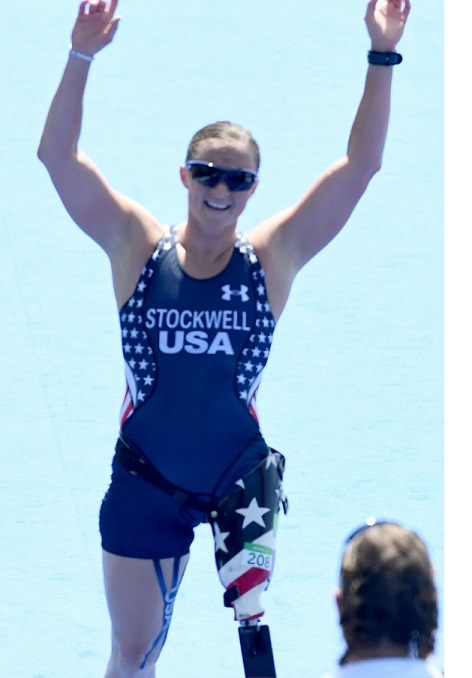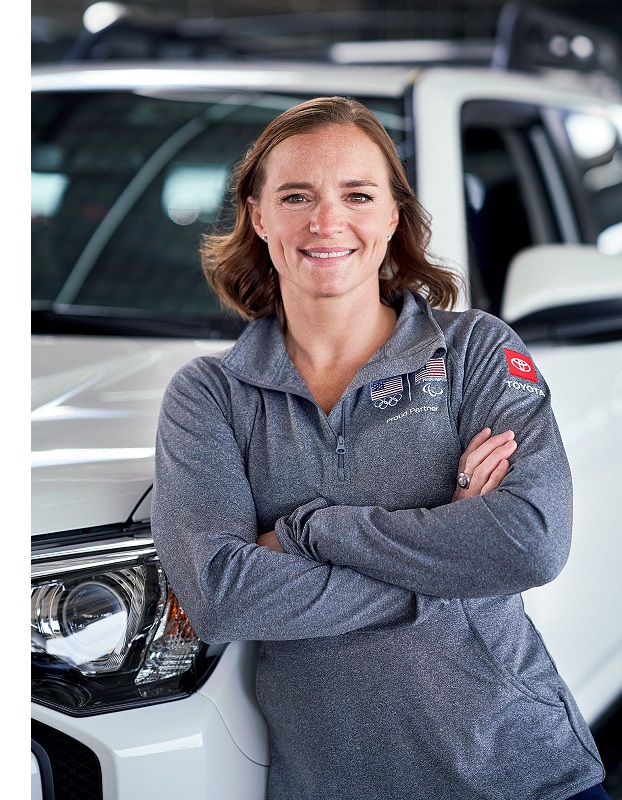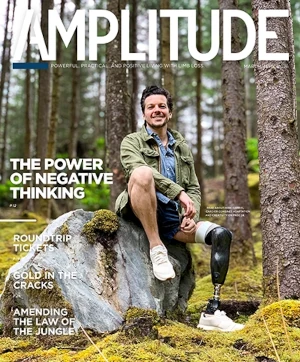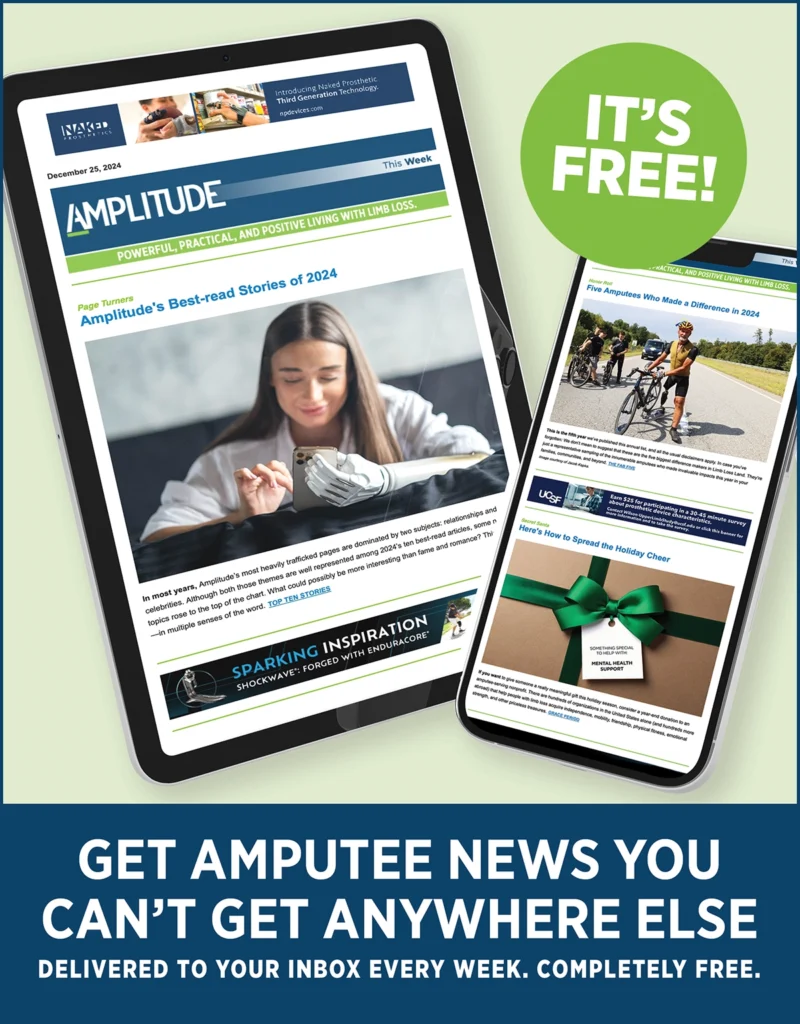
When Melissa Stockwell first competed in the Paralympics in 2008, American viewers could only watch a handful of sports—none of them live, all of them on NBC cable affiliates. For her fourth and final appearance, all 22 Paralympic sports will be broadcast live, and some will appear (for the first time ever) on NBC’s flagship network.
The growth of the Games’ visibility matches Stockwell’s own rise to iconic status. In addition to becoming one of the best-known faces of Team USA over the last decade-plus, she has been part of the first wave of US Paralympians to demonstrate the marketing potential of adaptive athletes.
Fresh off her first full-blown paratriathlon in more than a year (the Sarasota-Bradenton Triathlon Festival), Stockwell squeezed in a quick conversation with us to reflect on the increasing relevance of the Paralympics. We also asked her to speculate about the potential for increased growth of the Paralympic movement in the United States. The conversation is edited for clarity.
How did things go with the race in Sarasota?
They went great. Everyone was on a high to be back on the race course, so the races actually went very, very well for me and for all my teammates on the Resident Team that I train with every day. We’re all thrilled with the results. It’s a reward for all the hard work we put in through all the unknowns of COVID. It all paid off in faster times than we’ve ever seen, for many of us. So that was exciting, and it’s added on top of the excitement of just being back at a race.
How long had it been since you’d been able to compete?
Some of us did race at Challenge Daytona in December, but it wasn’t in the para-tri world. We were kind of thrown into it with other [able-bodied] racers, so it was a test of athletic ability. But it wasn’t a real paratriathlon, and that’s the true test. For so many months we just trained, and sometimes we didn’t even know if the Games were happening and whether we were training for nothing. But we all stuck with it. We have incredible camaraderie [on the Resident Team], and we act as a support system for each other. We’re all in the same boat, and it was really exciting to be back on the course together and have the payoff for everything we put in over these past months.
Daytona was originally going to be a Paralympic qualifying race, and then because of COVID and travel restrictions and so forth they removed that designation. Do you and the other US racers still have to clear the qualifying hurdle?
Nobody’s qualified yet. I honestly don’t even know if anybody knows the qualification criteria at this point. In a typical year we would go to races, earn [qualifying] points, earn country slots, and then earn individual slots. But typically you get a large number of points at the continental championships, and we’re one of the only countries that hasn’t had our continental championships. So the point totals are kind of skewed, because all the other countries have had their [continental championships]. I don’t know if ours is ever going to happen.
The next international race is supposed to be in May in Yokohama, Japan. And there should be some sort of US race in May, June, or July. Every day we’re just waiting for an update on what the next race is going to be. All I know is that whatever races happen, my teammates and I have to do well.
Is a “discretionary” slot essentially like an at-large invitation?
Not exactly. You first have to earn country slots, and you do that by being within the top eight in your category. So currently in my classification two of us are in the top eight. So we have technically earned two country slots for my classification. Who will take those two slots? My assumption is it will come down to some sort of discretion based on the races we’ve run.
But since three Americans won medals in your classification in 2016, couldn’t that get a little awkward if there are only two slots?
There’s always a chance that I’ll get an invitation. That’s how I got to Rio last time. I was the third American, and we only had two slots, but I was ranked high enough that they gave me an invite. All three of us should be ranked within the top five or six in our classification, depending on how everything falls. So we’ll see.

Let me shift gears on you for a second. We’ve been excited to see the extra commitment NBC is putting into the Paralympics, and it’s great to see such a large commitment by advertisers. You’re now sponsored by Toyota, which has a huge commitment to the Paralympics. When you went to your first Paralympics in 2008, did you even imagine the visibility would ever get to this level?
In 2008 I was very new in the Paralympic world, so I didn’t really pay that much attention to sponsorships and media coverage. I didn’t look at them as much as I do now. But with every year that goes by and every Games that happens, both summer and winter, there is more and more visibility for Paralympics. You have big companies such as Toyota that have sponsored just as many Paralympic athletes as Olympic athletes, which is huge. They’re coming to realize how invested Paralympic athletes are in our sports, how committed we are, and how we train just as hard as the Olympic athletes. For a company of that magnitude to showcase what we can do, it goes very far. It changes what the public thinks about when they think of athletes with disabilities, and that’s pretty incredible.
Other companies are doing that as well, big names that have taken a chance and chosen to focus on Paralympic athletes. There are so many inspiring stories, and I think it makes people want to know more about [disability in general].
How did your relationship with Toyota come together? Did you approach them? Did they approach you?
I have an agent who takes care of all my speaking and sponsorships and anything else in that realm. I think what companies do when they want to work with athletes is they reach out to the agents and kind of start there. My agent has had a good relationship with Toyota in the past. I did have a few interviews with Toyota before I became a Team Toyota athlete. I imagine they’re looking for a range of different sports—men and women, Paralympians and Olympians. I’m a mom and a veteran, so my guess is that those are factors as well.
I assume there’s a lot of vetting on both sides. The sponsor has to feel comfortable with you, and you have to feel comfortable with them.
Exactly. For anyone that has sponsored me, I want to have that vested interest. Toyota is a car company, but they are so focused on mobility, and mobility is such a huge part of my life. I can’t get around everyday without my prosthetic leg. So it was just such a really great fit.
If we compare 2008 to today, what has changed? Why are broadcasters and advertisers more inclined to view the Paralympics as a great marketing opportunity for them?
That’s a good question. I think when you hear a story about a Paralympian, you just feel it. You think about your own life and the obstacles you’re facing and the things you’re trying to overcome, and maybe that’s part of it. I also think it influences companies that are not necessarily Paralympic sponsors. I caught a commercial for Target a few months ago, and it wasn’t focused on the disability market, but there was someone who was missing their arms in the commercial. They didn’t make a big deal out of it; it was just another person who was in the commercial. It’s a way of having [disability] be more normal, more mainstream. There are millions of people with disabilities, and most of them are not Paralympians. We’re just like anybody else. We’re going shopping at Target, and we’re doing all these things that everyone else does.
Taking the progress from 2008 until now, can you project ahead to 2028 when the Olympics and Paralympics come to the US? Are you aware of promotional or sponsorship opportunities that might already be materializing for Paralympic athletes related to the 2028 cycle?
I don’t really have an inside scoop on it, but I would say the visibility is only going to grow, especially with the Games in the US. It’s exciting to think about. I’m confident there will be more visibility. You’ll see more companies supporting more Paralympic athletes, so I think it’s going to be a very exciting time. The momentum we have today will hopefully just keep going.




